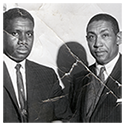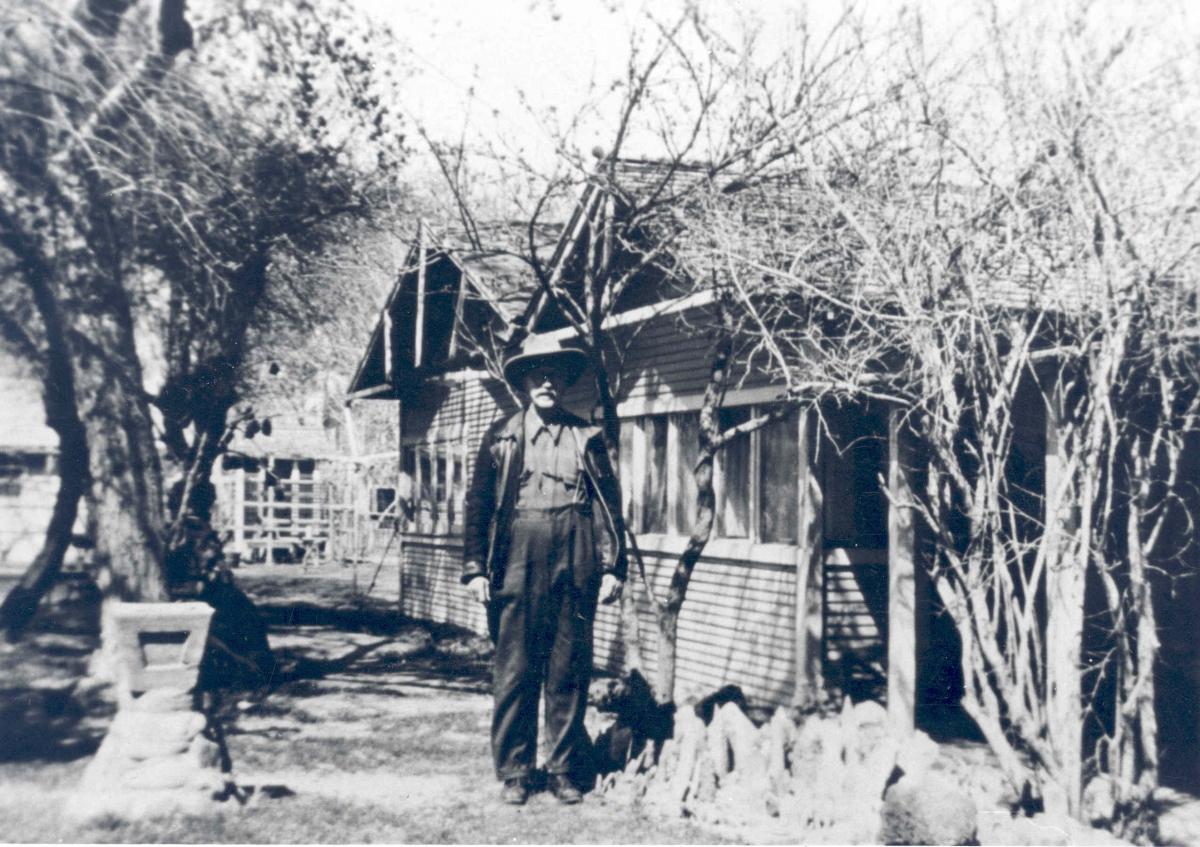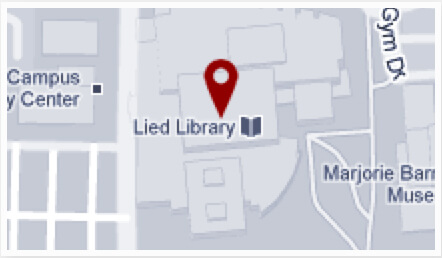Spotlights
In Brown v. Board of Education (1954), the United States Supreme Court decided that racially segregated schools were inherently unequal and mandated all school districts to desegregate schools. Meanwhile, there were three elementary schools located in West Las Vegas, and between 1956 and 1966 the Clark County School District (CCSD) built four additional elementary schools in this area. CCSD chose not to open any junior high or high schools in West Las Vegas; therefore, secondary schools in Las Vegas were more…
 A consent decree is as an order issued by a court that expresses a voluntary agreement by the participants in a lawsuit. In 1971, a consent decree alleged a series of violations of Title VII of the Civil Rights Act of 1964. The Las Vegas gaming…
A consent decree is as an order issued by a court that expresses a voluntary agreement by the participants in a lawsuit. In 1971, a consent decree alleged a series of violations of Title VII of the Civil Rights Act of 1964. The Las Vegas gaming…
The term EOB is referred to in many of the oral histories conducted for the African American Experience. These three letters denote the Economic Opportunity Board. The EOB was established to create and manage programs to end poverty in urban Las Vegas, and used federal funding to create job training initiatives, day care, a radio station, and literacy programs.
Programs such as these were part of President Lyndon B. Johnson’s theme to generate the era of the Great Society. His administration hoped to relieve economic…
 The area of Las Vegas called the Westside sits on land formerly called the McWilliams Townsite, which was the get-rich scheme of J. T. McWilliams in the early 1900s.
The area of Las Vegas called the Westside sits on land formerly called the McWilliams Townsite, which was the get-rich scheme of J. T. McWilliams in the early 1900s.
In 1902 Senator William A. Clark’s San Pedro, Los Angeles & Salt Lake Railroad hired local surveyor, J.T. McWilliams to survey and map the Las Vegas Ranch lands which the railroad had purchased from Helen J. Stewart. During the course of his work, McWilliams became familiar with the lands adjacent to the…
The Moulin Rouge Hotel Casino opened on May 24, 1955 as the first luxury interracial gaming establishment in Las Vegas. It closed in October of the same year. That five month period proved to be the heyday of the historic landmark.
Will Max Schwartz, Louis Ruben, Alexander Bismo and a group of partners owned the Rouge and built it just beyond the boundaries of the original Westside community at 900 West Bonanza. Joe Louis served as host welcoming crowds that included Hollywood royalty – Tallulah Bankhead, Harry Belafonte, Gregory…
In the great “Silver State” of Nevada Delta Sigma Theta Sorority is fortunate to have three distinctive chapters: Las Vegas Alumnae, Eta Chi, and Tau Mu. The Las Vegas Alumnae Chapter (LVAC) was the first chapter chartered in Nevada. The chapter was chartered on June 3, 1966 by eleven tenacious young educators and social workers. The eleven charter members of the Las Vegas Alumnae Chapter had the wisdom and foresight to know that there was and would always be a need for black women to be politically aware and involved and serve the…
Spotlights
In Brown v. Board of Education (1954), the United States Supreme Court decided that racially segregated schools were inherently unequal and mandated all school districts to desegregate schools. Meanwhile, there were three elementary schools located in West Las Vegas, and between 1956 and 1966 the Clark County School District (CCSD) built four additional elementary schools in this area. CCSD chose not to open any junior high or high schools in West Las Vegas; therefore, secondary schools in Las Vegas were more racially integrated.
However, CCSD closed two elementary schools in 1965 near West Las Vegas that could have been racially integrated and… Read more
 A consent decree is as an order issued by a court that expresses a voluntary agreement by the participants in a lawsuit. In 1971, a consent decree alleged a series of violations of Title VII of the Civil Rights Act of 1964. The Las Vegas gaming industry was continuing to discriminate against black workers.
A consent decree is as an order issued by a court that expresses a voluntary agreement by the participants in a lawsuit. In 1971, a consent decree alleged a series of violations of Title VII of the Civil Rights Act of 1964. The Las Vegas gaming industry was continuing to discriminate against black workers.
Local NAACP attorney Charles Kellar initiated the… Read more
The term EOB is referred to in many of the oral histories conducted for the African American Experience. These three letters denote the Economic Opportunity Board. The EOB was established to create and manage programs to end poverty in urban Las Vegas, and used federal funding to create job training initiatives, day care, a radio station, and literacy programs.
Programs such as these were part of President Lyndon B. Johnson’s theme to generate the era of the Great Society. His administration hoped to relieve economic distress and poverty in city communities in the so-called War on Poverty. Federal funds helped to start programs such as the EOB and… Read more
 The area of Las Vegas called the Westside sits on land formerly called the McWilliams Townsite, which was the get-rich scheme of J. T. McWilliams in the early 1900s.
The area of Las Vegas called the Westside sits on land formerly called the McWilliams Townsite, which was the get-rich scheme of J. T. McWilliams in the early 1900s.
In 1902 Senator William A. Clark’s San Pedro, Los Angeles & Salt Lake Railroad hired local surveyor, J.T. McWilliams to survey and map the Las Vegas Ranch lands which the railroad had purchased from Helen J. Stewart. During the course of his work, McWilliams became familiar with the lands adjacent to the railroad’s property, which included 80 acres of unclaimed land… Read more
The Moulin Rouge Hotel Casino opened on May 24, 1955 as the first luxury interracial gaming establishment in Las Vegas. It closed in October of the same year. That five month period proved to be the heyday of the historic landmark.
Will Max Schwartz, Louis Ruben, Alexander Bismo and a group of partners owned the Rouge and built it just beyond the boundaries of the original Westside community at 900 West Bonanza. Joe Louis served as host welcoming crowds that included Hollywood royalty – Tallulah Bankhead, Harry Belafonte, Gregory Peck, Dorothy Lamour, Sammy Davis, Jr., Dean Martin, Jack Benny, Frank Sinatra, and Peter Lawford. The first line of black… Read more
In the great “Silver State” of Nevada Delta Sigma Theta Sorority is fortunate to have three distinctive chapters: Las Vegas Alumnae, Eta Chi, and Tau Mu. The Las Vegas Alumnae Chapter (LVAC) was the first chapter chartered in Nevada. The chapter was chartered on June 3, 1966 by eleven tenacious young educators and social workers. The eleven charter members of the Las Vegas Alumnae Chapter had the wisdom and foresight to know that there was and would always be a need for black women to be politically aware and involved and serve the African American community. The charter members were Gwendolyn O’Neal Booker, Barbara Williams Curtis, Shirley Anderson Williams… Read more



